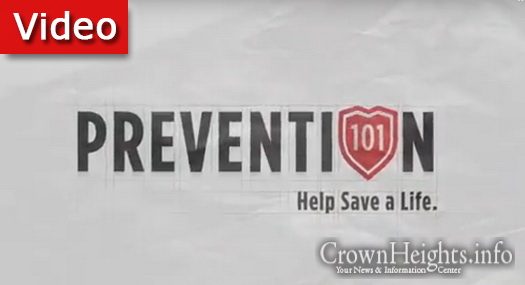
Prevention101: Why is My Child Being Bullied?
Experts do not exactly understand why some students are targeted as victims and others are not. When we look at research, physical characteristics are not clear indicators. Unusually tall or short children, children with braces or glasses, and children with freckles or weight problems are often teased, but this does not mean they will become a serious and persistent victim of bullying. However, studies show that the best indicator for whether or not a child will be targeted is usually how they react to teasing.
Bullying is about power. If a bully teases a child because he or she is much shorter than the other children, but that child shrugs it off and doesn’t seem bothered, then that child is not a likely victim. A child who is teased and runs out of the room crying has shown the bully that he or she has power over the child.
Adults blessed with children who are very sensitive, kind hearted souls know it is virtually impossible to tell such a child, “Don’t react, don’t cry, don’t be upset.” This is at odds with the child’s biological reality. Shy and anxious children are shy and anxious. They can eventually outgrow it and get past it, but it is in their genes. Not reacting is very difficult for them.
Additionally, it is sometimes easier for children and even adults to tolerate girls being reactive rather than boys. A girl being sensitive and a crier is more accepted while a boy who is sensitive and cries easily does not go over well with his peers. What can we do to help our children and our students who are victims?
First and foremost, we must validate them. They need to hear us say that whatever is being done to them it is not justified, and they need to believe us when we say this. They need to know we believe no one has the right to make other people feel devalued or unimportant. Whatever has happened, whether it was their snack that was stolen yet again or something they did and people made fun of them, nothing justifies the bullying behavior. Most importantly, they need to know it isn’t their fault.
After validation, we now have to say to the victim, “How do we help situations like this in the future?” Sometimes, the best option is careful planning. We can encourage them not take out their really yummy snack and have everybody bother them about sharing it. We can show them how to keep their homework in a place where someone cannot grab it. It is important that the children understand these safeguards are not because it’s their fault that the bullies act as they do, but because the only thing a person can change is what he or she does. We must teach our children that they can only control their actions and are not responsible for the actions of others.
Related to reactions, sometimes, we have to teach our children to be really good actors and actresses. We have to help them understand that, like actors, how we feel on the inside doesn’t always match what we show on the outside. If a child is Abe Lincoln in the President’s Day play, he or she has to stand tall, stiff, and straight with the stovepipe hat on, even though inside he or she might be shaking and nervous. This is the same thing we have to teach our victim children to do when they get tormented and feel as though they are going to react. Children need to know it is okay to have those feelings inside, but they should try to think about their favorite superhero or movie character so they can act stronger or braver than they feel just for a minute until they can get themselves to a safe place.
Some victims benefit from attending social skills groups and learning social skills such as how to have conversations, how to break into a conversation, how to go beyond some of their reactivity and shyness, and how to deal with conflict in social situations. All of that can help.
While there are many strategies we can teach our children who are being bullied, we should never do any of that without first validating that we understand how painful this is for victims and emphasizing that it’s not their fault. Bullies make victims feel insignificant and make them believe something is wrong with them. The best defense is to help these children believe in themselves and see that the fault lies with the bully and not them.
(Article is based on an interview with Dr. Rona Novick for Operation Survival’s Prevention101series)












